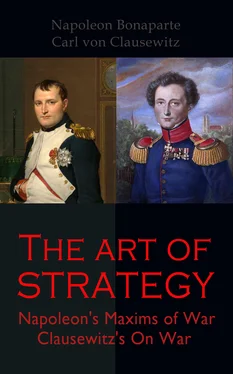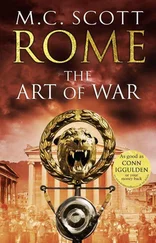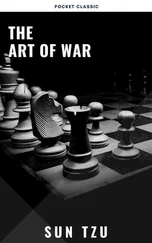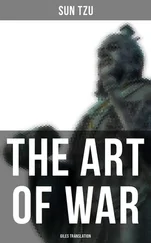In 1703, at the attack of Hornbec, Marshal Villars, seeing the troops advancing without spirit, threw himself at their head: “What!” said he, “is it expected that I, a marshal of France, should be the first to escalade, when I order YOU to attack?”
These few words rekindled their ardor; officers and soldiers rushed upon the works, and the town was taken almost without loss.
“We have retired far enough for to-day; you know I always sleep upon the field of battle!” said Napoleon, as he flew through the ranks at the moment of resuming the offensive at Marengo. These few words sufficed to revive the courage of the soldiers, and to make them forget the fatigues of the day, during which almost every man had been engaged.
Table of Contents
Tents are unfavorable to health. The soldier is best when he bivouacs, because he sleeps with his feet to the fire, which speedily dries the ground on which he lies. A few planks, or a little straw, shelter him from the wind.
On the other hand, tents are necessary for the superior officers, who have to write and to consult their maps. Tents should, therefore, be issued to these, with directions to them never to sleep in a house. Tents are always objects of observation to the enemy’s staff. They afford information in regard to your numbers and the ground you occupy; while an army bivouacking in two or three lines, is only distinguishable from afar by the smoke which mingles with the clouds. It is impossible to count the number of the fires.
The acknowledged advantage of bivouacking is another reason for adding an entrenching-tool to the equipment of the soldier; for, with the assistance of the axe and shovel, he can hut himself without difficulty. I have seen huts erected with the branches of trees, covered with turf, where the soldier was perfectly sheltered from the cold and wet, even in the worst season.
Table of Contents
All information obtained from prisoners should be received with caution, and estimated at its real value. A soldier seldom sees anything beyond his company; and an officer can afford intelligence of little more than the position and movements of the division to which his regiment belongs. On this account, the general of an army should never depend upon the information derived from prisoners, unless it agrees with the reports received from the advanced guards, in reference to the position, etc., of the enemy.
Montécuculli wisely observes that “prisoners should be interrogated separately, in order to ascertain, by the agreement in their answers, how far they may be endeavoring to mislead you.” Generally speaking, the information required from officers who are prisoners, should have reference to the strength and resources of the enemy, and sometimes to his localities and position. Frederick recommends that prisoners should be menaced with instant death if they are found attempting to deceive by false reports.
Table of Contents
Nothing is so important in war as an undivided command; for this reason, when war is carried on against a single power, there should be only one army, acting upon one base, and conducted by one chief.
“Success,” says the Archduke Charles, “is only to be obtained by simultaneous efforts, directed upon a given point, sustained with constancy, and executed with decision.” It rarely happens that any number of men who desire the same object are perfectly agreed as to the means of attaining it; and if the will of one individual is not allowed to predominate, there can be no ensemble in the execution of their operations; neither will they attain the end proposed. It is useless to confirm this maxim by examples. History abounds in them.
Prince Eugene and Marlborough would never have been so successful in the campaigns which they directed in concert, if a spirit of intrigue and difference of opinion had not constantly disorganized the armies opposed to them.
Table of Contents
The same consequences which have uniformly attended long discussions and councils of war, will follow at all times. They will terminate in the adoption of the worst course, which in war is always the most timid, or, if you will, the most prudent. The only true wisdom in a general is determined courage.
Prince Eugene used to say that councils of war “are only useful when you want an excuse for attempting nothing .” This was also the opinion of Villars. A general-in-chief should avoid, therefore, assembling a council on occasions of difficulty, and should confine himself to consulting separately his most experienced generals in order to benefit by their advice, while he is governed at the same time in his decision by his own judgment. By this means, he becomes responsible, it is true, for the measures he pursues; but he has the advantage also of acting upon his own conviction, and of being certain that the secret of his operations will not be divulged, as is usually the case where it is discussed by a council of war.
Table of Contents
In war, the general alone can judge of certain arrangements. It depends on him alone to conquer difficulties by his own superior talents and resolution.
The officer who obeys, whatever may be the nature or extent of his command, will always stand excused for executing implicitly the orders which have been given to him. This is not the case with the general-in-chief, on whom the safety of the army and the success of the campaign depend. Occupied, without intermission, in the whole process of observation and reflection, it is easy to conceive that he will acquire by degrees a solidity of judgment which will enable him to see things in a clearer and more enlarged point of view than his inferior generals.
Marshal Villars, in his campaigns, acted almost always in opposition to the advice of his generals, and he was almost always fortunate. So true it is, that a general, who feels confident in his talent for command, must follow the dictates of his own genius if he wishes to achieve success.
Table of Contents
To authorize generals or other officers to lay down their arms in virtue of a particular capitulation, under any other circumstances than when they are composing the garrison of a fortress, affords a dangerous latitude. It is destructive of all military character in a nation to open such a door to the cowardly, the weak, or even to the misdirected brave. Great extremities require extraordinary resolution. The more obstinate the resistance of an army, the greater the chances of assistance or of success.
How many seeming impossibilities have been accomplished by men whose only resource was death!
In the campaign of 1759, Frederick directed General Fink, with eighteen thousand men, upon Maxen, for the purpose of cutting off the Austrian army from the defiles of Bohemia. Surrounded by twice his numbers, Fink capitulated after a sharp action, and fourteen thousand men laid down their arms. This conduct was the more disgraceful, because General Winch, who commanded the cavalry, cut his way through the enemy. The whole blame of the surrender fell, therefore, upon Fink, who was tried afterward by a court-martial, and sentenced to be cashiered and imprisoned for two years.
In the campaign of Italy in 1796, the Austrian General Provéra capitulated with two thousand men in the castle of Cossaria. Subsequently, at the battle of La Favorite, the same general capitulated with a corps of six thousand men. I scarcely dare to revert to the shameful defection of General Mack in the capitulation of Ulm in 1805, where thirty thousand Austrians laid down their arms—when we have seen, during the wars of the Revolution, so many generals open themselves a way by a vigorous effort through the enemy, supported only by a few battalions.
Читать дальше












